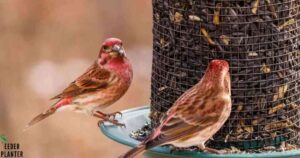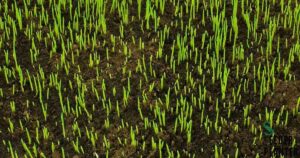It is correct that grass seed can go bad. There might be several reasons behind this. Like it is not stored properly. If it is found at the moisture place or found at the heated place or too much storage time reduce its ability. And it results in poor germination.
It is important to store the seed in a proper place, like in a cool, dry and recommended shelf. Ever you wonder about Can Grass Seed Go Bad? The longevity of grass seed flourishes in the lawn. Improper storage conditions, like moisture and heat, can render grass seed less effective over time.
Every seed packet has its expiry date so you should check it before buying. And also you should buy the seed from your trusted distributor or the center which should be authorized by the government. Because a packed and new seed will germinate faster and will be safe from the diseases.
Factors through which Can Grass Seed Go Bad
There are following factors which lead the seed to go bad.
- Moisture
- Humidity
- Direct Sunlight
- Rodents when storing seed
- Oxygen
- Seed Maturity
Moisture
Excessive moisture adversely affects seeds by creating a favorable environment for the growth of molds and fungi. High moisture content can lead to seed deterioration, loss of viability, and susceptibility to various diseases. Mold growth may compromise the nutritional integrity of the seeds, reducing their quality for planting.
Additionally, moisture can contribute to seed clumping, making it challenging to sow them evenly. Proper storage in dry conditions is crucial to prevent moisture-related damage and ensure the successful germination of grass seeds.
Humidity
High humidity can adversely affect grass seed by promoting fungal growth and mold formation, leading to seed spoilage. It affects their growth which gives us bad results.
Direct Sunlight
Direct sunlight can have a detrimental effect on grass seeds, causing them to go bad. Excessive exposure to sunlight can lead to desiccation, drying out the seeds and reducing their viability. The intense heat can also accelerate the aging process, negatively impacting germination rates.
Additionally, prolonged sunlight exposure may make the seeds more susceptible to fungal infections. To ensure successful grass seed growth, it’s crucial to provide the right environmental conditions, including adequate shade and moisture, to prevent deterioration caused by direct sunlight.
Rodents when storing seed
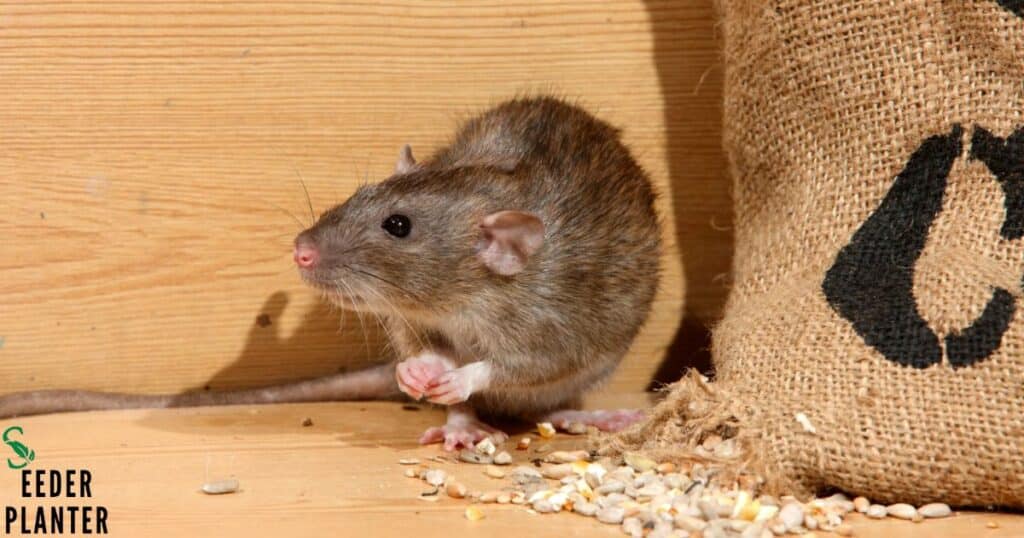
Rodents can significantly impact the storage of grass seed, leading to spoilage. These pests often contaminate stored seeds with their droppings, urine, and fur, creating an unsanitary environment. Additionally, rodents may consume or damage the seeds directly, reducing the overall quality and viability.
The presence of rodents can contribute to mold growth, further compromising the integrity of the grass seed. Proper storage measures, such as using sealed containers and implementing pest control strategies, are crucial to prevent rodent-related issues and ensure the longevity of the stored grass seed.
Oxygen
Exposure to excessive oxygen can lead to the deterioration of grass seeds. Oxygen promotes oxidation reactions that may cause fats in the seeds to become rancid, negatively impacting their quality and viability. This process, known as oxidative rancidity, can result in off-putting odors and flavors, rendering the seeds less suitable for germination and growth.
Seed Maturity
If grass seeds are harvested before reaching full maturity, they may lack essential components for successful growth. Premature harvesting can result in poor germination rates and overall seed quality. Improper storage conditions can accelerate seed deterioration.
It leads to a higher likelihood of the grass seed going bad over time.
When seeds mature, they reach a stage where their internal structures and nutrients are optimal for germination.
When it expires, does grass seed go rancid?
Grass seed does not go rancid like perishable food items. However, its viability diminishes over time due to factors such as moisture, heat, and storage conditions. Expired grass seed may have reduced germination rates, affecting its effectiveness for planting.
Three Steps to Determine If grass Seeds Are Viable
1.Germination Test
Conduct a germination test to assess the viability of grass seeds. Place a sample of seeds in a moist environment with suitable temperature and observe the percentage of seeds that successfully germinate. A high germination rate indicates viable seeds.
2.Visual Inspection
Examine the appearance of the seeds. Healthy, viable seeds tend to have a plump and firm appearance, while non-viable seeds may appear shriveled, discolored, or damaged. Moldy or foul-smelling seeds are likely compromised.
3.Float Test
Conduct a float test to check seed density. Place the seeds in water; viable seeds generally sink, while non-viable or empty seeds may float. This simple test helps to identify seeds with potential for successful germination.
These steps provide a practical and reliable way to determine the viability of grass seeds before planting, ensuring optimal conditions for successful germination and healthy plant growth.
Do Old Seeds Still Germinate?
The germination rate of old grass seeds decreases over time, as viability diminishes. Factors like storage conditions, moisture, and temperature impact seed longevity. While some old seeds may still germinate, it’s advisable to use fresher seeds for optimal success in establishing healthy grass.
Can It Freeze Seed?
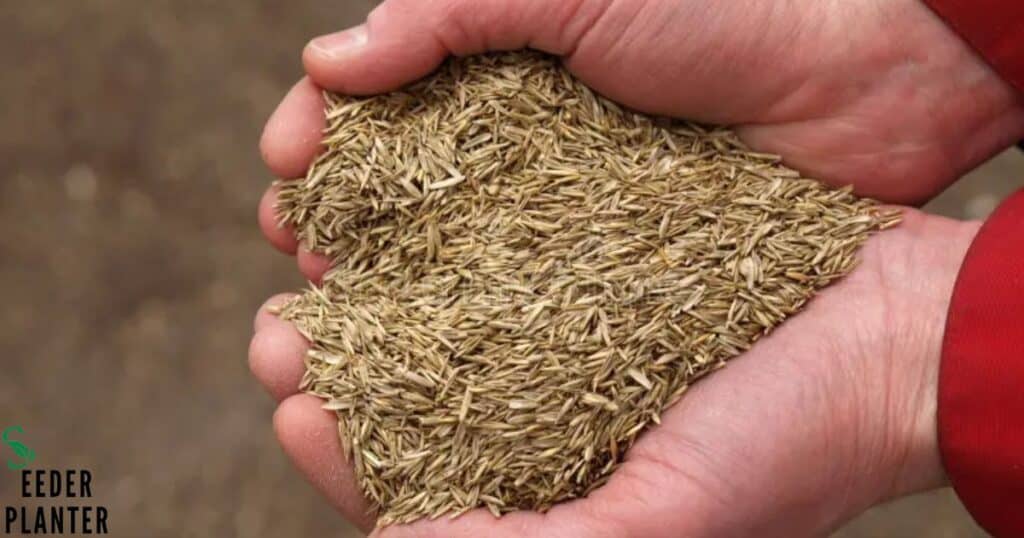
Yes, It can freeze. While many grass seed varieties are tolerant of cold temperatures, prolonged exposure to freezing conditions may affect their viability. It’s essential to store grass seed in a cool, dry place and avoid exposing it to extreme temperatures for extended periods to maintain optimal germination potential.
Seed Shelf Life
The shelf life of seed varies depending on the seed type, storage conditions, and the initial quality of the seed. Generally, most seeds have a shelf life of about 2 to 3 years if stored in cool, dry conditions. Proper storage, such as keeping the seed in a sealed container away from moisture and extreme temperatures
It helps maintain seed viability for a longer duration. Checking expiration dates on seed packaging and conducting germination tests can ensure optimal results when planting.
Frequently Asked Questions
Can grass seed go bad in the bag?
Yes, seed can go bad in the bag if not stored properly. Heat and light can lead to deterioration, affecting the seed’s viability for successful germination.
Does grass seed go bad when frozen?
It can tolerate freezing temperatures without going bad, but prolonged exposure to freezing conditions may affect its germination rate.
Will old grass seed germinate?
Old seed may still germinate, but its germination rate tends to decrease over time.
How long does grass seed take to germinate?
Seed germination typically takes between 5 to 30 days, depending on the grass species, environmental conditions, and seed variety.
Will seed grass germinate on top of soil?
It can germinate on top of soil, but optimal germination usually requires proper seed-to-soil contact
Final Thoughts
It can indeed go bad over time due to various factors. The viability of seed diminishes with age, influenced by storage conditions, moisture, and exposure to extreme temperatures. Improperly stored seeds may develop mold, lose essential nutrients. And experience a decline in germination rates. It’s crucial to check expiration dates on seed packaging.
To prolong shelf life, store seed in cool, dry environments, away from direct sunlight, and in sealed containers. Regular monitoring and proper storage practices can help maintain seed quality, ensuring optimal germination rates when planting and promoting successful grass establishment. Overall, mindful handling and storage are key to preventing seed from going bad.

I am Alexander James, a seasoned professional with 4 years of expertise, brings passion and skill to every project. Elevate your experience with my knowledge and creativity.
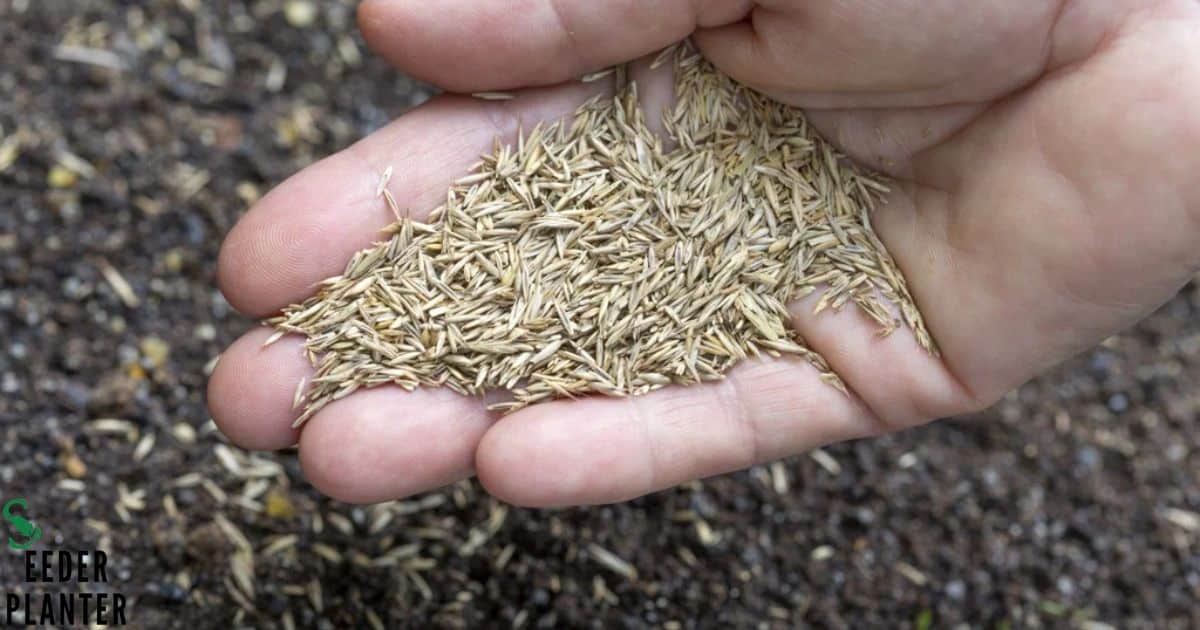
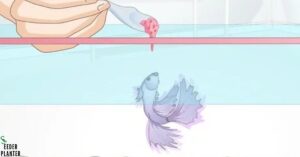

![Hollyhock Seeds: The Complete Guide to Success [2024]](https://seederabout.com/wp-content/uploads/2024/10/Hollyhock-Seeds-The-Complete-Guide-to-Success-2024-300x157.jpg)

